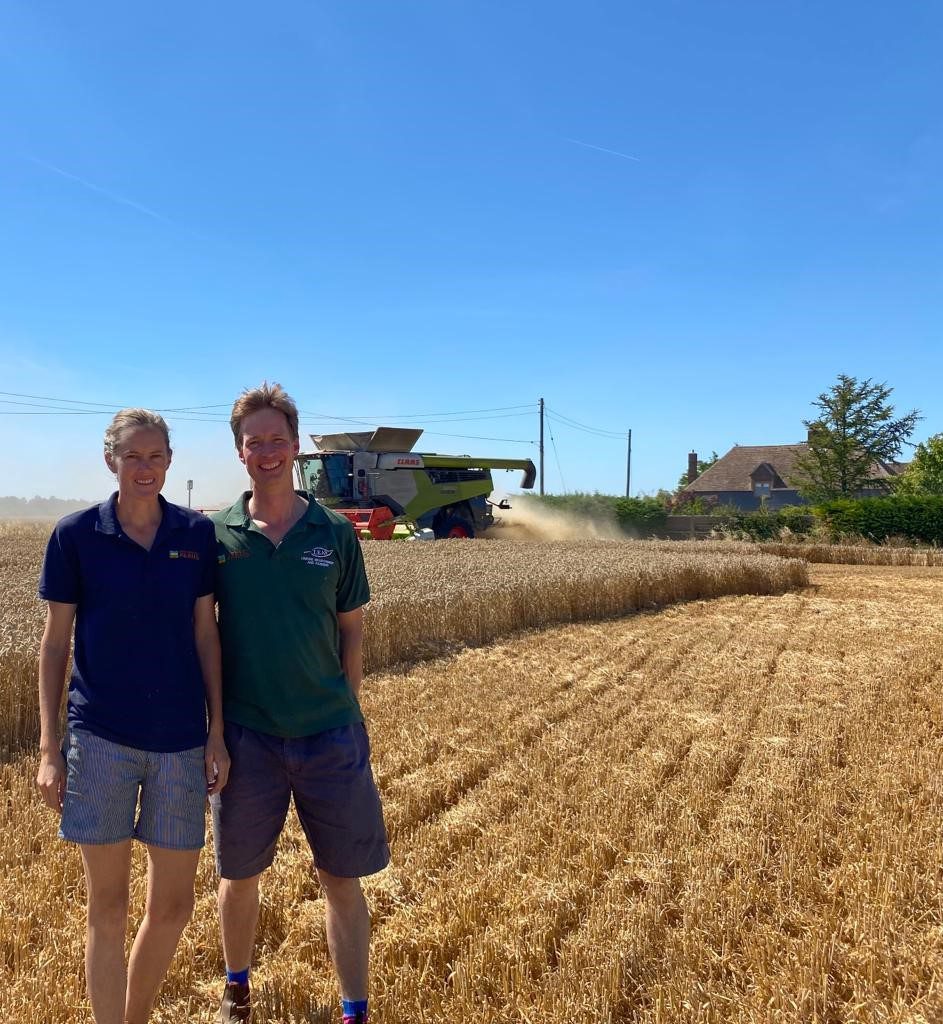“We first welcomed the public onto the farm back in 2010, when we took part in a Higher Level Stewardship (HLS) scheme that included the educational access options. As a teacher, this made sense to me, because I can access schools and speak their language. We hosted one-off visits from primary and secondary schools and although that was great, we knew we wanted and could achieve more.
It became apparent that regularity was key in helping children and teachers to understand food production and enable us to provide a true experience. We began by setting up Seedlings, which was a weekly drop-in session for pre-schoolers. Many parents and children came each week, and we began to notice how effective this was at sharing our knowledge about the farm with families. In 2020, we rolled our education programme out to both schools and those who are electively home-educated, with them visiting the farm once a week for at least six week blocks. This is when we noted significant progress in the level of understanding visitors gained from their time on the farm.
Growing a community
Before we knew it, we were welcoming university students, PhD researchers, local residents, and even MPs. Now, the farm has become a centre for sustainable food production, and we are growing a community to help change perspectives. What began as isolated visits has grown organically; facilitating education on a broad level, welcoming new entrants into farming and encouraging a sense of shared ownership of the farm.
As well as learning from us and our team, people come forward to share their knowledge on topics such as insects, birds, and pollinators. This means learning is cyclical, and we are all part of a positive journey.
Sustainable approach
Although we describe ourselves as regenerative farmers, ultimately, we are applying a sustainable approach and achieving that by putting healthy soils and the environment first. This has helped to tell our narrative as it’s digestible, something people can fully engage with.
Environmental management opens so many doors for people to get involved. It’s interesting and multi-faceted, whether that’s hedge-laying, monitoring biodiversity or planting farmland trees. Not to forget the principles behind food production too. It encourages people to visit regularly because there is always something to do and learn.
Transition from conventional
Of course, we haven’t always operated in this way. As farmers, we too have been on a journey, including bringing our clients on board. To do this, we had to provide evidence and data to support the transition of their own farms into a regenerative system. Soil testing and benchmarking were, and continue to be, important in demonstrating the potential of what we could achieve through change. This is further supported by being part of a couple of cluster farm networks, comparing and contrasting results.
It’s a slow process that requires drip feeding, because it can be overwhelming to completely change approach, particularly when you are changing a hitherto ingrained mindset. Risk is seen as high and it’s key to understand the connections between the changes being made, and the potential outcomes.
The journey continues
Headed up by our Assistant Farm Manager, Hugo Dwerryhouse, we’re beginning to integrate livestock back into the farming system. We’ve started by grazing cattle on winter cover crops and wildflower mixes, and are beginning to graze sheep on our cereals during winter to see if we can further reduce the need for sprays as a result. We are also starting to run pigs in our woodland.
Ideally, we want to maximise local markets, create demand and hopefully, self-generate a localism food community, where people can learn, taste and consume where their food comes from.
Championing diversity
What is important to us is that we champion diversity. It’s not just stereotypical farmers anymore, we welcome all and it is a joy to share the farm with such a broad range of backgrounds and perspectives. For us it’s all about the people – attracting new entrants to the sector and giving them a voice in food production.
We’re proud to facilitate knowledge sharing and hope to continue to build this multi-faceted, sustainable farming community.”
Read more about Nonington Farms learning opportunities and all-in-one farming services. You can even head over to the British Farming Awards website to read the 2022 event highlights.
CHAP aims to build networks of leading scientists, farmers, advisors, businesses and academia to understand industry priorities and develop innovative solutions. To be our next guest contributor, e-mail enquiries@chap-solutions.co.uk
Please note, the opinions expressed in this article are the author’s own and do not necessarily reflect the views or opinions of CHAP.












